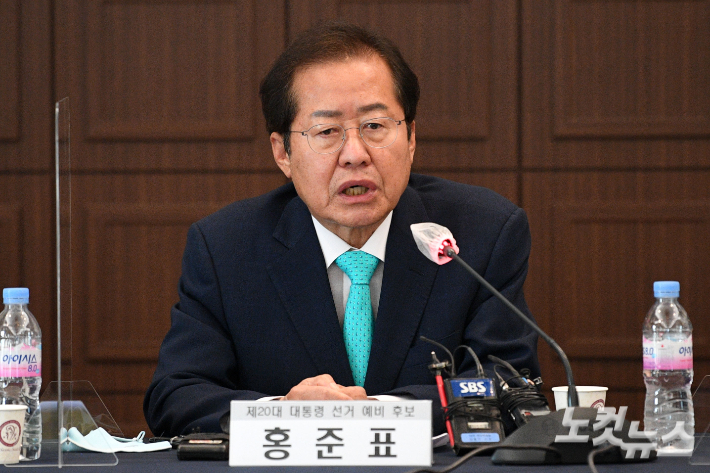Politics
On this day, Americans lament more than the tragic death of a young president; on this day, Americans lament the nihilism born from those who were incapable of accepting its senselessness.

Sixty years ago, the assassination of JFK violently robbed the country of its chosen future and darkened it for a generation, along with the Vietnam War and the upheaval of the Sixties. For some, grief begat laments and counterfactuals of brighter futures denied and, for others, justifications for a radicalism more poisonous than any previously witnessed in American history—one that plagues the country to this very day.
The sudden, violent murder of President Kennedy in Dallas, Texas convulsed the entire nation. Two aspects distinguished the event from previous assassinations.
First, news of the murder was relayed instantaneously around the world. In the new era of television, everyone knew and experienced a moment of shared universal grief at the same time.
Second, the grief was compounded by the apparent senselessness of the murder. Kennedy was the torchbearer of a new generation promising America a New Frontier; Lee Harvey Oswald, was a disturbed leftist intent on satisfying his own delusions of self-importance.
To those desperate for an explanation, the judgment rendered by journalist James Reston resonated loudly: “Somehow the worst in the nation had prevailed over the best…something in the nation itself, some strain of madness and violence.”
As posited by James Piereson, liberals, in particular, ingested this explanation, agreeing that the “real cause” of Kennedy’s murder was a perniciousness latent within America. Despite Oswald’s Marxist leanings, this perniciousness could be found in the opponents of progress, such as conservatives whose ideas were no more than “irritable mental gestures” and the racist reactionaries in “nut country.”
Indeed, First Lady Jacqueline Kennedy, President Lyndon Johnson, and other liberals moved expeditiously to give the tragedy purpose by obscuring Oswald’s radical leftism and crafting the myth of JFK as a martyr for civil rights.
According to this narrative, JFK was poised to lead the nation into a new era of race relations. Kennedy’s civil rights bill would have passed had it not been for the opposition from segregationists (within his own party). In the assassination’s aftermath, LBJ attached new urgency to the bill and championed its passage as a tribute to JFK.
Unfortunately, Johnson’s successes did not satisfy an increasingly restless segment of the civil rights movement, or a youthful cohort intoxicated by New Left heterodoxy. Dissatisfied leaders called for greater militancy and a departure from peaceful civil disobedience. Riots in numerous cities punctuated the growing frustration and, in response, Johnson appointed a commission to investigate the cause.
In 1968, the commission concluded its study and named the cause: white racism. Putatively, an America recognizing its racist past would be constructive, as it would spur Americans on to examine how to achieve a genuinely color-blind democracy.
The admission of guilt, however, did not satisfy militants; instead, they seized on the conclusion to assert that the entirety of American society was racist. Eventually radicals, black and white, declared themselves in possession of a new “consciousness”—an awareness of the “real truth”—that granted them the prerogative to condemn and, where possible, rectify such iniquities. Such consciousness amplified the collective guilt hypothesized by Reston.
According to Shelby Steele, this supposed consciousness led the African American community down a fateful path – once one realizes the entire system is racist, then one can conclude he or she will always be a victim. Furthermore, any attempt to integrate, seek advancement, or even adhere to prevailing norms would be futile, and more pointedly, would constitute faithlessness to this new consciousness.
The concurrence of black consciousness capitalizing on white guilt resulted in the former community’s trading its newfound freedom for the power to extort obligations from the latter. The latter acceded to these demands because doing so restored a measure of moral authority; by fulfilling the black community’s demands, whites could reassure themselves they were benefactors to black advancement.
In assuming this role, however, white liberals also incautiously accepted the blame for the metastasizing dysfunction within the African American community instead of holding black men and women accountable for the same transgressions they would decry in their own community.
By the mid-’70s, white guilt, black consciousness, and New Left radicalism converged in a “punitive liberalism” that aimed to eradicate the perniciousness underlying a seemingly inexhaustible list of American sins—greed, racism, xenophobia, misogyny, homophobia, slavery, genocide, environmental destruction, militarism, and imperialism.
Because punitive liberals self-righteously accept collective guilt and possess an enlightened consciousness, they believe themselves justified in constructing an alternate morality and acquiring the authority to enforce it.
In terms of practical politics, punitive liberalism cultivated a network of identity-based interest groups focused on promoting and taking advantage of this sense of historical guilt. In terms of policy, punitive liberalism enacted affirmative action, environmental regulations, and welfare entitlements; abandoned longtime Cold War allies; and, campaigned for unilateral disarmament.
By the end of the ’70s, punitive liberal policies had sapped the vitality and ambition of Americans, supplanting the standbys of enterprise and resilience with restrictions and dependency. The ensuing stagnation only convinced punitive liberals of the need for more regulations and welfare.
The vicious cycle slowly ensnared more and more Americans, and cruelly so, just as changing global economic circumstances shifted the U.S. from an industrial economy to a knowledge-based economy.
The new “cognitive elite” emerged at the vanguard of the modern information economy, and as Charles Murray has explained, it was distinguishable from its agrarian and industrial predecessors in that it had relinquished the obligation to espouse and model the civic and moral virtues that others should emulate if the polity is to remain prosperous and whole.
Indeed, the cognitive elite, increasingly segregated in gated clusters around the country, continues to marry, raise children, earn high incomes, forsake vice, and attend church at rates far greater than the rest of the population. Meanwhile, more and more average Americans succumb to the dysfunctions once only observed in the underclass.
Unburdened by this traditional role, the cognitive elite sought to “fundamentally transform” the country, which was achievable, in part, if it ensured the enlightenment of the next generation in accordance with its ideological precepts.
While the cognitive elite is prevalent, it is not pervasive. Having failed to achieve the revolution dreamed by its New Left forerunners, punitive liberals have instead sought to capture the entire edifice of America’s educational institutions—from primary learning to post-graduate studies.
Christopher Rufo has extensively documented this undertaking whereby leftist radicals have transmuted the dogma of collective guilt and identity consciousness into a pedagogy and curriculum of critical race theory in direct opposition to the Judeo-Christian premises of the American Creed.
This evolution explains how the sunny triumphalism of JFK gave way to the dour defeatism of Jimmy Carter and then the cavalier conceit and condescension of Barack Obama.
Subscribe Today
Get daily emails in your inbox
This evolution explains how the Democratic Party, home of FDR and Truman, the vanquisher of Nazism and the champion of an independent Israel, became the platform for the anti-Semitic defense of Palestinian radicalism.
This evolution explains how the academic delinquents who accused American soldiers returning from Vietnam of killing babies spawned the faux intellectual elite unapologetically declaring their support for Hamas terrorists who murdered babies.
On this day, Americans lament more than the tragic death of a young president; on this day, Americans lament the nihilism born from those who were incapable of accepting its senselessness.
Note: This article have been indexed to our site. We do not claim legitimacy, ownership or copyright of any of the content above. To see the article at original source Click Here












